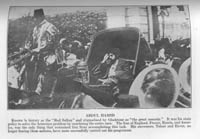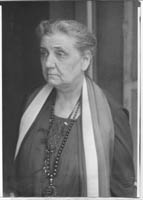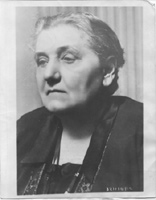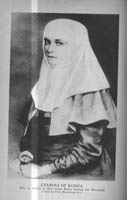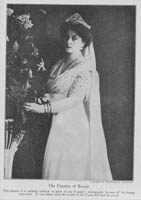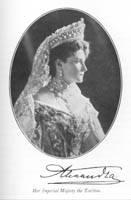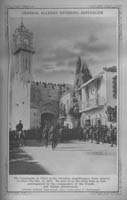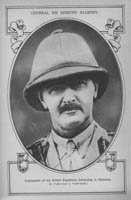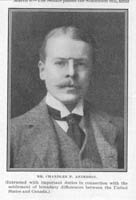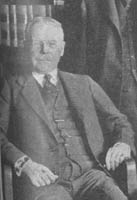Table of Contents
Key Figures
Statesmen
a | b | c | d-e | f | g | h-i | j-l | m | n-o | p | r | s | t-v | w-y
Sultan Abdul Hamid II of the Ottoman Empire (1842-1918)
Son of Sultan Abdul-Medjid I, Abdul Hamid succeeded his brother, Sultan Murad V, to the throne in 1876. Abdul Hamid attempted to put down a rebellion in the Balkans which resulted in Russian intervention. During the Russo-Turkish War (1877-1878), the Russians drove down the Balkan peninsula and threatened Constantinople. Under the Treaty of San Stefano, the Turks lost most of their European possessions except for Albania, Macedonia, and Thrace. Abdul Hamid promised to introduce reforms in the empire, but failed to implement them. He approved the massacre of Armenians from 1895 to 1896, which set the precedent for the Armenian atrocities of 1915. In response to revolts on Crete, Abdul Hamid went to war with Greece from 1896 to 1897. His rule was characterized by misgovernment and discontent, which strengthened the power of the Young Turk movement. In 1908, the Young Turks forced Abdul Hamid to restore the constitution of 1876 and the Parliament deposed the Sultan by a unanimous vote. Abdul Hamid went into exile at Salonika in 1909, but decided to return to Constantinople in 1912. He was imprisoned at Magnesia until his death in 1918.
Jane Addams (1860-1935)
An American social welfare worker, Addams opened a social settlement house, Hull House, in Chicago in 1889 and served as its resident supervisor until 1935. Through her tireless efforts, Addams became the acknowledged leader in American settlement work. In 1911, she became the founder and first president of the National Federation of Settlements. In June 1919, Addams was a member of the American Friends Service Committee (AFSC) delegation that visited Germany to assess the social conditions in the new republic. Because of the terrible impact of the Allied Blockade on German diets, many children suffered from nutritional diseases and the AFSC delegation recommended that the United States government begin a food distribution program for children through the American Relief Administration as soon as possible. Addams returned to the United States and became president of the Women's International League for Peace and Freedom, a position she held from 1919 to 1935. In 1920, Addams helped found the American Civil Liberties Union. She shared the Nobel Peace Prize with Nicholas Murray Butler in 1931.
Tsarina Alexandra Feodorovna of Russia (1872-1918)
Born Alix Victoria Helene Luise Beatrix, she was the daughter of Grand Duke Ludwig IV of Hesse-Darmstadt and the granddaughter of Queen Victoria of Great Britain. Alexandra married Tsar Nicholas II of Russia in 1894 and she became a devout Russian Orthodox. As a result of her concern for the health of her only son, Tsarovitch Paul, she came under the influence of the religious fanatic Rasputin, a situation that resulted in a number of scandals that weakened the monarchy. Alexandra was very concerned about the welfare of Russian soldiers incarcerated in German prison camps during the war and extended assistance through the YMCA's War Prisoners' Aid program. As a result of the February Revolution in March 1917, Tsar Nicholas abdicated the throne and the royal family became prisoners. The family was executed by the Bolsheviks at Ekaterinburg in July 1918 to prevent the Romanovs from falling into White Russian hands.
Edmund Henry Hynman Allenby (1861-1936)
A British field marshal, Allenby began his military career fighting in Africa in Bechuanaland (1884-1885), Zululand (1888), and the Boer War (1899-1902). He rose to the rank of major general by the beginning of World War I as a cavalry officer (1914-1915) and was promoted to command the Third Army on the Western Front (1915-1917). In June 1917, the British High Command transferred Allenby to the Near East to take command of the Egyptian Expeditionary Force. Allenby launched an offensive against the Turks in Palestine, seizing Beersheba and Gaza in the Fall of 1917, which led to the capture of Jerusalem in December. Despite the transfer of troops to the Western Front, Allenby maintained the offensive and won a major victory over the Turks in the battle of Megiddo in September 1918, one of the last great cavalry battles in history. When the Turks signed their armistice in October, British troops had entered Damascus, Tripoli, and Aleppo. The British government bestowed a peerage on Allenby in 1919 as Viscount Allenby of Megiddo and Felixstowe and promoted him to the rank of field marshal. Allenby served as the High Commissioner of Egypt from 1919 to 1925.
Chandler Parsons Anderson (1866-1936)
Anderson trained as a lawyer at Harvard University and became an expert on international arbitration. He became a counselor with the U.S. Department of State in 1910 and outlined the responsibilities of the U.S. Consular Service in conducting POW inspection and relief services in Europe in December 1914. Anderson was the U.S. arbitrator on Anglo-American pecuniary claims arbitration (1913-1923) and the U.S. Commission on the Mixed Claims between the U.S. and Germany (1923).
